
From Gloria Steinem to Lena Dunham, there are many fierce ladies who have been (and should continue to be) applauded for working to make the world a better place for women. But it’s also important to remember that we have some awesome ― and swoon-worthy ― male allies out there.
Recently there’s been much discussion around the term feminist, and most of it boils down to a fundamental misunderstanding of what “feminism” actually means. At its core, feminism is “the belief that men and women should have equal rights and opportunities.” Or if you’d like to take the word of Beyoncé’s ”***Flawless” over Merriam-Webster’s: “Feminism is the social, political and economic equality of the sexes.” (Chimamanda Ngozi Adichie FTW.)
Of course, many of the people who want to see men and women have equal rights and opportunities are dudes. To celebrate these badass bros, we’ve rounded up 26 famous men who have openly advocated for women.
These easy-on-the-eyes celebrities have tackled numerous topics including domestic and sexual violence, female sexuality and pop-culture’s distorted representation of women. No matter your gender identity, if you are fighting for equality, we welcome, encourage and celebrate you.
1. Daniel Radcliffe
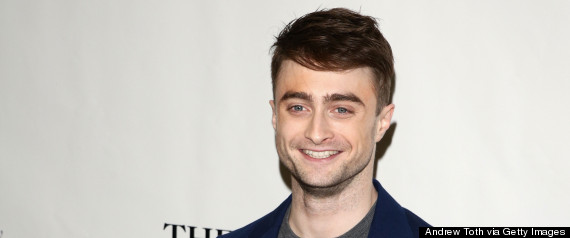
In an interview with Buzzfeed Brews in June 2014, Radcliffe discussed his views on the “friend zone”:
Have you ever heard a girl say she’s in the friend zone? It’s a thing I think men need to be really careful about using... Do I think men and women can be friends? Yes, absolutely. Do I think men and women who are sexually attracted to each other can just be friends? Eh, it will probably become an issue at some point whether you deal with it, and talk about it and just move on, but it will always sort of get dealt with eventually… I definitely think the idea of friend zone is just men going, ‘This woman won’t have sex with me.’
2. Patrick Stewart
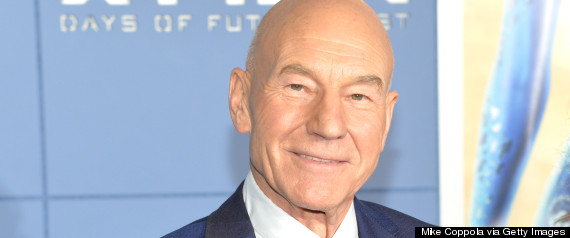
Having witnessed his father physically abuse his mother as a child, Stewart gave a riveting speech for Amnesty International UK in October 2009. Remembering the impact the abuse had on him as a boy, he spoke to the responsibility men have to end this violence: “Even if she had [done something to provoke my father to hit her], violence is a choice. And it’s a choice that a man makes. We can choose to stop it.”
3. Mark Ruffalo
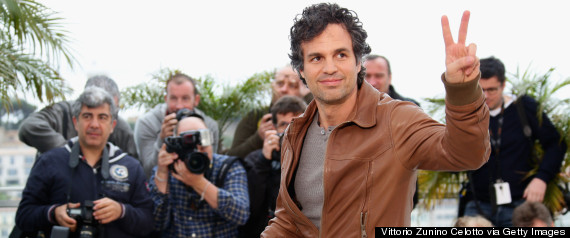
The 46-year-old actor penned a letter in August 2013 in support of reproductive rights. Ruffalo opened up about his own mother’s experience of having an illegal abortion and used the letter to rally supporters:
I invite you to find your voice and let it be known that you stand for abortion rights and the dignity of a woman to be the master of her own life and body. I invite you to search your soul and ask yourself if you actually stand for what you say you stand for. Thank you for being here today and thank you for standing up for the women in my life.
4. Eddie Vedder
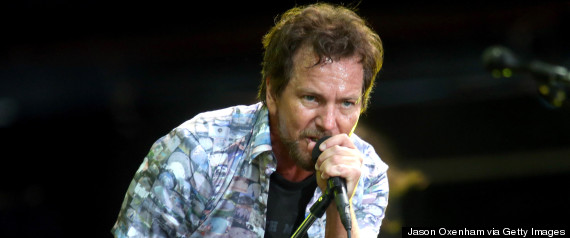
In a 1992 op-ed for Spin Magazine, the Pearl Jam frontman explained why a woman’s right to choose to have a child is much more than just a woman’s issue:
Combat lines are drawn at clinics, and women must be escorted through trenches, which only adds to their trauma. This is not a game. This is not a religious pep rally. This is a woman’s future... There are people wary of the strength that young voters possess. Prove them right. Decide on the issues and vote ― male or female ― for this is not just a women’s issue. It’s human rights. If it were a man’s body and it was his destiny we were deciding there would be no issue. Not in today’s male dominated society.
5. David Schwimmer
In a June 2011 interview with The Telegraph, the “Friends” actor discussed his close affiliation with The Rape Foundation in Santa Monica and how he first became involved with sexual abuse awareness activism: “I’ve had two girlfriends who were victims of child sexual abuse, and one was also later a date-rape victim. That sensitized me to the issue in a way that I hadn’t been before.”
6. Ezra Miller
In February 2013, the 21-year-old actor attended New York’s One Billion Rising To Stop Violence Against Women campaign in Times Square, where he told the crowd: “One in three women in the world will experience domestic violence or rape within the course of their lifetime. To me, I grew up in a household of women and I feel that all revolutionary causes should start with addressing misogyny.”
7. John Legend
From his newest music video, “You & I (Nobody In The World)” which promotes body love and self-acceptance in women, to openly advocating for women on numerous public platforms, Legend has always been a huge supporter for women’s rights. At the March 2013 Sound Of Change Live concert he told the crowd: “All men should be feminists. If men care about women’s rights the world will be a better place... We are better off when women are empowered ― it leads to a better society.”
8. Jon Hamm
In a February 2011 Daily Mail interview, the “Mad Men” star spoke about how much progress we’ve made when it comes to breaking free of traditional gender roles since the time when his hit show is set. And Hamm made it clear that he is quite happy to see such a male-dominated society become a thing of the past:
Men ruled the roost and women played a subservient role [in the 1960s]. Working wives were a rarity, because their place was in the home, bringing up the kids. The women who did work were treated as second class citizens, because it was a male-dominated society. That was a fact of life then. But it wouldn’t be tolerated today, and that’s quite right in my book ... People look back on those days through a thick veil of nostalgia, but life was hard if you were anything other than a rich, powerful, white male.
9. Seth Meyers
“When you work with the sort of really strong women that I work with, the idea that anyone would want to make decisions for them is hard to wrap your head around,” the “Late Night” host told ELLE magazine in a September 2012 interview.
The 46-year-old comedian has a long and impressive résumé of smart, self-reflective comedy about privilege, race and gender. In his 2013 HBO standup special “Oh My God,” C.K. preached some serious (and seriously funny) feminist comedy:
How do women still go out with guys, when you consider that there is no greater threat to women than men? We’re the number one threat to women! Globally and historically, we’re the number one cause of injury and mayhem to women. You know what our number one threat is? Heart disease.
10. Prince Harry
In a June 2013 speech for the CHIME For Change concert the second royal son said, “When women are empowered, they immeasurably improve the lives of everyone around them ― their families, their communities, and their countries. This is not just about women, we men need to recognize the part we play too. Real men treat women with dignity and give them the respect they deserve.”
11. Ryan Gosling
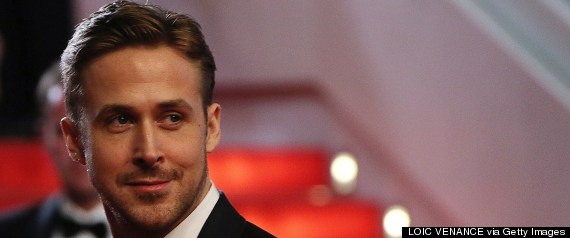
After the MPAA gave his movie “Blue Valentine” an NC-17 rating for depicting a woman receiving oral sex, the actor issued a statement slamming the media’s discomfort with female pleasure:
You have to question a cinematic culture which preaches artistic expression, and yet would support a decision that is clearly a product of a patriarchy-dominant society, which tries to control how women are depicted on screen... The MPAA is okay supporting scenes that portray women in scenarios of sexual torture and violence for entertainment purposes, but they are trying to force us to look away from a scene that shows a woman in a sexual scenario, which is both complicit and complex. It’s misogynistic in nature to try and control a woman’s sexual presentation of self. I consider this an issue that is bigger than this film.
12. Daniel Craig
For International Women’s Day in March 2011, the “James Bond” actor starred in a short video which featured Craig dressed as a woman and staring into the camera, as Judi Dench’s voiceover explains: “Women are responsible for two thirds of the work done worldwide, yet earn only 10 percent of the total income and own 1 percent of the property... So, are we equals? Until the answer is yes, we must never stop asking.”
13. Andy Samberg
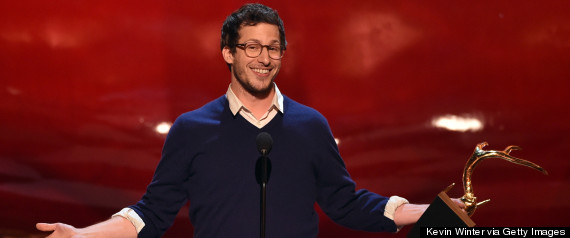
If it wasn’t enough to rock a National Organization for Women (NOW) t-shirt on a regular basis, the 35-year-old actor and comedian had some choice words for those who say women aren’t funny: “It’s crazy. Since there have been men and women, there have been funny women... f**king idiot-ass men keep saying that women aren’t funny. It makes me crazy. I find it disgusting and offensive every time,” Samberg told Glamour magazine in an August 2013 interview.
14. Alan Alda
Alda has identified as a feminist his entire career. He has spoken out for women’s rights tirelessly on the Equal Rights Amendment Countdown Campaign where he served as an honorary co-chair with Betty Ford. He has written articles discussing women’s issues in Ms. Magazine and was even named “the quintessential Honorary Woman” by the Boston Globe. In his latest blow to patriarchy, Alda spoke with HuffPost Live this past May where he said, “I think [misogyny] is like a disease that needs to be cured. And if we could eradicate Polio, I don’t see why we can’t eradicate misogyny.”
15. Ian Somerhalder
As part of the UK Women’s Aid “Real Man” campaign in 2011, the “Vampire Diaries” actor explained why he cares about issues like domestic violence:
I wanted to take part in this campaign because it’s so easy to forget the many women live their lives in fear because of domestic violence. Men have an important role to play in sending out the message that real men do not hurt or abuse their partners.
16. Ben Stiller
In a May 2009 interview that appeared in Time Out Dubai Stiller spoke about the gender gap in the comedy world. “I think that in general, there’s a certain ‘men’s club’ sort of attitude about comedy in terms of how men see women,” he said. “But it goes deeper than that. I think men want to see women in a certain light, it’s subconscious and they’re not even aware of it. It has to do with men’s outlook on women. Hopefully that will change.”
17. The Dalai Lama
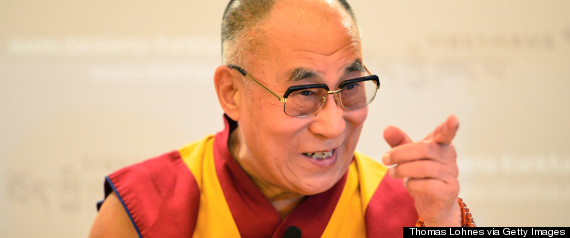
During a September 2009 speech at the National Civil Rights Museum, the Dalai Lama hit the nail on the head when commented, “I call myself a feminist. Isn’t that what you call someone who fights for women’s rights?”
18. Joseph Gordon-Levitt
This past January the self-proclaimed feminist actor went on the Ellen Show and explained why he thought his debatably progressive film “Don Jon” was such an important story to tell:
My mom brought me up to be a feminist. She would always point out to my brother and me that our culture does often portray women like objects... She wanted me and my brother to be aware of it because we see these images on TV, in the movies and on magazines all the time. And if you don’t stop and think about it, it just sort of seeps into your brain and that becomes the way you perceive reality.
19. Will Smith
When asked why he let his daughter, Willow, cut off all of her hair in a May 2012 interview with Parade, the 45-year-old actor responded perfectly:
We let Willow cut her hair. When you have a little girl, it’s like how can you teach her that you’re in control of her body? If I teach her that I’m in charge of whether or not she can touch her hair, she’s going to replace me with some other man when she goes out in the world. She can’t cut my hair but that’s her hair. She has got to have command of her body. So when she goes out into the world, she’s going out with a command that is hers. She is used to making those decisions herself. We try to keep giving them those decisions until they can hold the full weight of their lives.
20. Richard Sherman
Once known for his controversial rant leading up to the 2014 Super Bowl, the Seattle Seahawks cornerback proved he definitely has a way with words during January 2014′s NFL Media Day. When asked how he deals with the “bad example” some athletes set for young women by glorifying strip cubs ― an odd question to begin with ― the Stanford grad replied:
Well, I’ve never gone into a strip club and thrown money, so I couldn’t tell you. I guess trying to understand that there are other avenues, there are other ways you can make money, that women can do anything they want in this world. You can go out there and be a CEO of a company. Like I said before, the same can be said for kids in the inner city ― the ceiling is limitless and don’t limit yourself to those possibilities and those circumstances.
21. Jay Baruchel
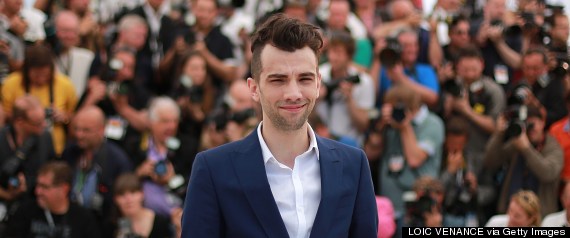
In a March 2012 interview with Vulture, Baruchel explained why he prefers writing female characters:
I do [prefer writing women characters], just because I’m a mama’s boy. I was raised by my mom, I have a little sister, and I’m constantly annoyed [by] how terribly written most females are in most everything ― and especially in comedy. Their anatomy seems to be the only defining aspect of their character, and I just find that untruthful and it straight-up offends me. A lot of the strongest people I know are chicks. And as a viewer, I get a kick out of watching real characters. So I take it upon myself to clean that shit up and write actual women. And I like writing strong women, because as a straight male, there’s nothing more attractive to me than a strong girl.
22. Ashton Kutcher
Kutcher stole our hearts when he discussed how poorly most sex education addresses female sexuality. He told Movieline in a January 2011 interview:
The male orgasm is actually right there and readily available to learn about because it’s actually part of the reproductive cycle, but the female orgasm isn’t really talked about in the education system. Part of that creates a place where women aren’t empowered around their own sexuality and their own sexual selves, and from a purely entertainment point of view, to create a movie with a female lead that’s empowered with her own sexuality is a powerful thing. And if we can give teenage people something to think about from a sex perspective, I would say it would be to open a conversation where women are empowered with their own sexual experiences from an educational level as well as an entertainment level.
23. President Barack Obama
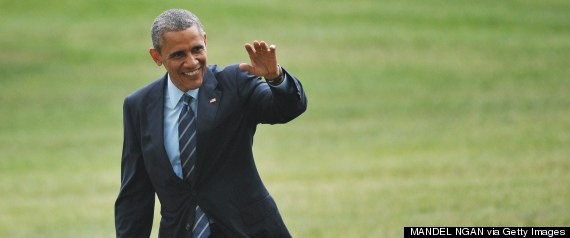
President Obama signed Lilly Ledbetter Fair Pay Restoration Act bill into law on January 29, 2009, allowing women to file equal pay lawsuits against their employers for up to six months after receiving their last paycheck. In a January 2012 speech discussing the Lilly Ledbetter Act and why he supports the Paycheck Fairness Act, President Obama said, “Too often women can’t access the information they need to fight the pay discrimination... Women can’t wait for equal pay. And I won’t stop fighting to address this inequality.”
24. Blair Underwood
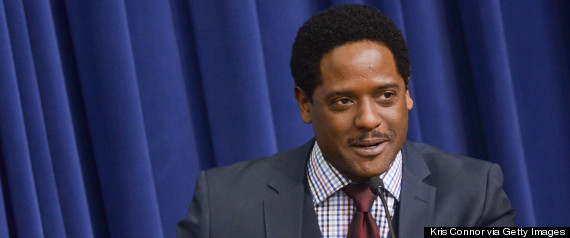
During a 1992 interview at the March for Women’s Rights in Washington D.C., Blair Underwood discussed why he is pro-choice:
Basically it boils down to the government or legislative body telling me what I can and cannot do in planning my own family. So, if you are going to tell a woman what to do, that woman may be my wife, that woman may be my girlfriend. That doesn’t sit well with me to tell them and to tell me what I can’t do with my family. So, in a nutshell, that’s basically why I’m here, and that’s why it’s important for most of us men to be here. Because, you can’t live in this world, obviously, without coming into contact with women. I mean, a woman is my mother, gave me life, gave me sisters. I have a girlfriend I love dearly. All of that comes into play. It’s not about abortion being right or wrong. It’s about having that choice to decide what a person should do with their own body.
25. Antonio Banderas
In a March 2013 PSA for the UN’s Stop Violence Against Women Campaign, the 53-year-old Spanish actor urged viewers to end domestic violence:
Two million women and girls are trafficked each year into prostitution, forced labor, slavery or servitude… These women are our sisters and our daughters, our grandmothers and our mothers. This is unacceptable. And it must stop now.
26. Donald McPherson
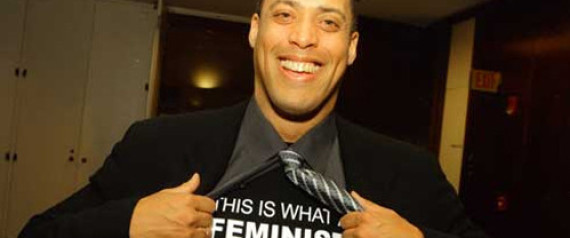
The former NFL quarterback turned social activist has founded several outreach programs and regularly speaks at college campuses about ending domestic and sexual violence. In a March 2013 CNN article about men’s roles in stopping violence against women, McPherson wrote:
What can men do [to stop violence against women]? Men do not just need to stop being violent. The vast majority of men are not violent. But men do need to stop being silent. Calling violence against women, whether street harassment or sexual harassment or rape or murder, a “women’s issue” allows men to ignore it as if we have no responsibility for it or stake in ending it. We all have grandmothers, mothers, sisters, daughters and female friends and colleagues. Our lives are inextricably interwoven; women’s issues of safety and equality directly affect our lives as men. Beyond that, women are humans, with the same rights to safety and freedom as men. It is therefore our moral responsibility to not remain silent or passively on the sidelines, but to be actively engaged in confronting this problem in every corner of homes, communities, and societies.
